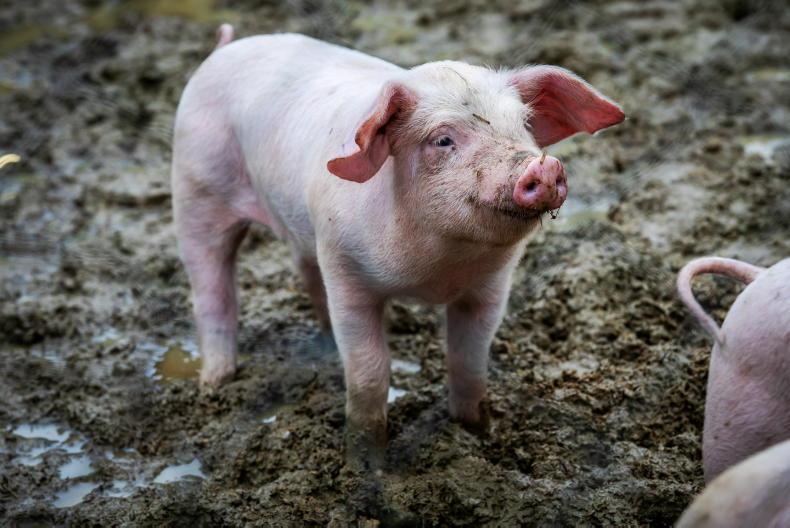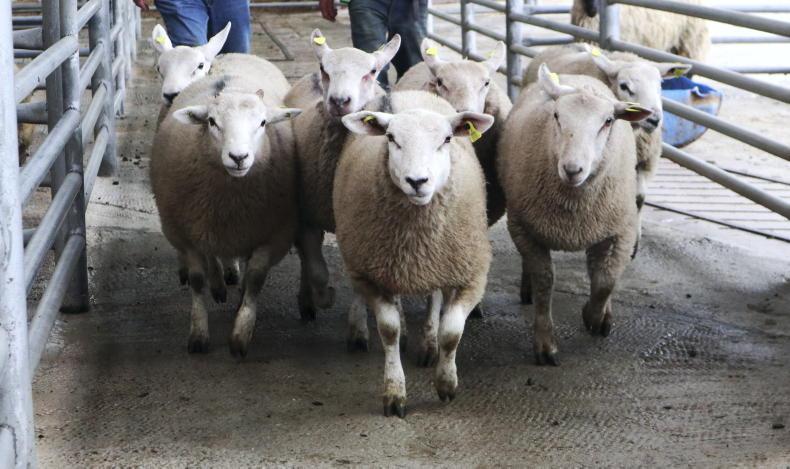Sheep farmers’ frustrations at lamb prices reducing by upwards of 50c/kg since the start of the year are being exacerbated by reports of increased numbers of lambs being imported.
Sheep imports from Northern Ireland are a weekly occurrence but there have also been reports in the last week of lambs being imported from Britain. We have no oversight on whether these reports are fact-based or rumour-driven.
As a country reliant on exports, farmers are not naive in thinking we can support live exports but condemn imports.
The root of the problem is – and always has been – a lack of transparency around imports. This information is critical in determining if imports are being used to manipulate the market.
How many more calls will it take for regulatory bodies who oversee these imports to put a mechanism in place that reports these figures on a weekly basis in the same manner as live exports are reported?
This week's cartoon

\ Jim Cogan
Forward price milk contracts
Thankfully the surge in farm input prices is being partly offset by exceptionally strong dairy markets.
However, in this week's edition, Jack Kennedy reports on the difficulties some farmers are facing in relation to fixed milk price contracts. Those with a high percentage of their production within these schemes are most exposed.
There are clearly lessons to be learned. Unfortunately, many of the mechanisms within the initial schemes that would have offered some protection to farmers were omitted from contracts in recent years.

The IFA master lease has become the template for land leasing. A similar template is clearly needed for forward milk price schemes – one that provides a legal framework to deal with unforeseen and exceptional events while also protecting the integrity of the contract for all parties.
Perfect storm brings crisis to pig sector
We have a perfect storm in the pig sector: Brexit, COVID-19, China and high feed prices have all combined to leave farmers incurring heavy losses.
A high level of COVID-19 infections is limiting processing capacity and creating a backlog of pigs on farms. The Government’s COVID-19 support schemes should be extended to assist processors in offsetting increased costs associated with operating facilities over the weekend to avoid any potential welfare issues.
Given the impact of Brexit on the UK market, the second largest destination for Irish pigmeat, the scope to access the Brexit Adjustment Reserve (BAR) fund should be explored.
Government stance on LNG plant flawed
Given Ireland’s dependency on imported natural gas for electricity and heat and with Europe’s deepening gas crisis, the importance of the proposed €650m liquefied natural gas (LNG) import terminal on the Shannon Estuary cannot be overstated.
Minister Eamon Ryan’s stance needs to be called into question: does it reflect the views of Government? His concerns around importing fracked gas could be dealt with by developing a guarantees of origin scheme, as reported by Stephen Robb this week. In light of rising electricity demand and the intermittency of renewable generation, it’s time to look west to ensure energy security.
Sheep farmers’ frustrations at lamb prices reducing by upwards of 50c/kg since the start of the year are being exacerbated by reports of increased numbers of lambs being imported.
Sheep imports from Northern Ireland are a weekly occurrence but there have also been reports in the last week of lambs being imported from Britain. We have no oversight on whether these reports are fact-based or rumour-driven.
As a country reliant on exports, farmers are not naive in thinking we can support live exports but condemn imports.
The root of the problem is – and always has been – a lack of transparency around imports. This information is critical in determining if imports are being used to manipulate the market.
How many more calls will it take for regulatory bodies who oversee these imports to put a mechanism in place that reports these figures on a weekly basis in the same manner as live exports are reported?
This week's cartoon

\ Jim Cogan
Forward price milk contracts
Thankfully the surge in farm input prices is being partly offset by exceptionally strong dairy markets.
However, in this week's edition, Jack Kennedy reports on the difficulties some farmers are facing in relation to fixed milk price contracts. Those with a high percentage of their production within these schemes are most exposed.
There are clearly lessons to be learned. Unfortunately, many of the mechanisms within the initial schemes that would have offered some protection to farmers were omitted from contracts in recent years.

The IFA master lease has become the template for land leasing. A similar template is clearly needed for forward milk price schemes – one that provides a legal framework to deal with unforeseen and exceptional events while also protecting the integrity of the contract for all parties.
Perfect storm brings crisis to pig sector
We have a perfect storm in the pig sector: Brexit, COVID-19, China and high feed prices have all combined to leave farmers incurring heavy losses.
A high level of COVID-19 infections is limiting processing capacity and creating a backlog of pigs on farms. The Government’s COVID-19 support schemes should be extended to assist processors in offsetting increased costs associated with operating facilities over the weekend to avoid any potential welfare issues.
Given the impact of Brexit on the UK market, the second largest destination for Irish pigmeat, the scope to access the Brexit Adjustment Reserve (BAR) fund should be explored.
Government stance on LNG plant flawed
Given Ireland’s dependency on imported natural gas for electricity and heat and with Europe’s deepening gas crisis, the importance of the proposed €650m liquefied natural gas (LNG) import terminal on the Shannon Estuary cannot be overstated.
Minister Eamon Ryan’s stance needs to be called into question: does it reflect the views of Government? His concerns around importing fracked gas could be dealt with by developing a guarantees of origin scheme, as reported by Stephen Robb this week. In light of rising electricity demand and the intermittency of renewable generation, it’s time to look west to ensure energy security.












SHARING OPTIONS